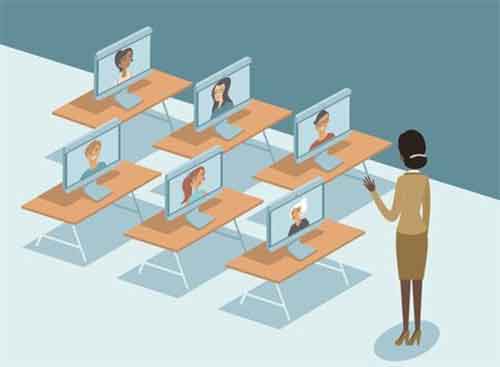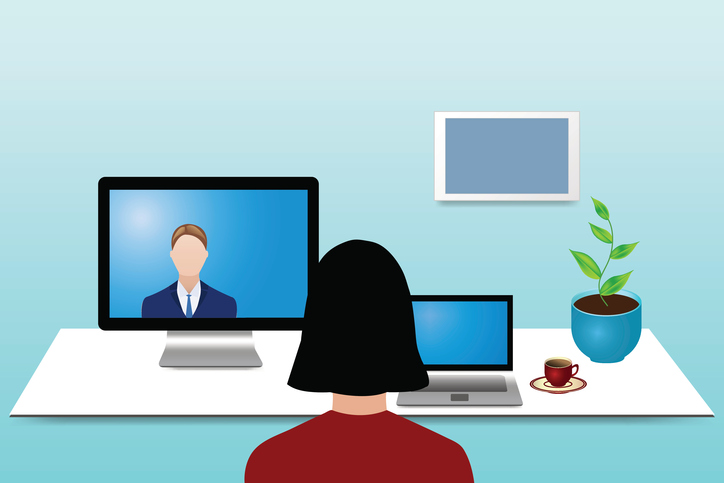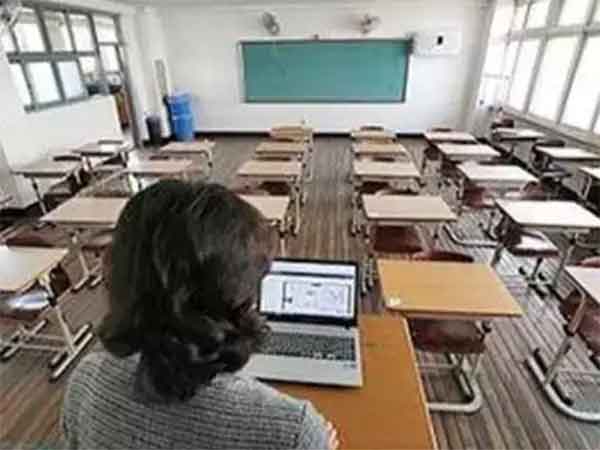
“Education is the most powerful weapon which you can use to change the world.” Nelson Mandela.
Derived from a Latin word “ Educatum” it means the act of teaching or training. The training to nourish the good qualities in human beings and to bring out the best in every individual. Education seeks to develop the innate capacities of man. To educate individual is to give him some desirable knowledge, understanding skills, interests, attitudes and critical thinking. It is education which enables individual to differentiate between good and evil.
The modern age is the age of “Digital Technology and Digital Masters”. From small retail stores to big government offices, almost every task is being carried out by using digital technology. During the present crises the system of education has heavily come under the purview of digital technology.
Although, education is one of the basic and fundamental prerequisite for the development of a person and personality, an individual can develop himself into a potential being only by pursuing education. In fact, education and digital technology are adjacent to each other but once the digital technology becomes the only agent of communication, it unfolds a different perspective where the class distinction comes into the limelight.
While the government of India had launched the “Digital India Campaign” to make the government services available to each and every citizen electronically by providing them online infrastructural improvement and connectivity. It also aims to empower the country digitally in the domain of technology, education and to provide high speed internet networks to rural areas.” India is home to the largest population of children in the world, with an estimated 430 million children in the age group of 0-18 years ( Censusindia.gov.in) which absolutely is a great asset to have. The campaign also claims to bring in the policy of inclusiveness, where everyone is supposed to be engulfed under it. But when introspected, it looks upside down. As the requirements to bring in the digital development can not be met out by each and every individual of the society, they can not afford it on their own. So the first query that strikes the mind is, what are the parameters of making a pure digital country? Who is having the access to digital technology, what it requires to be the part of “Technologically Enhanced Learning” or e-Learning.
Obviously, it requires the proper investment in digital infrastructure, to make each and every citizen connected to the digital world, for that matter one must have access to smart phone, internet, electricity, personal laptops, digital skill etc. Going by the present circumstances, it seems that, to have access to these things is a remote possibility as half of the population in India is struggling for their livelihood, be it food, shelter, health etc.
On the one hand, the draft on “New Education Policy 2019” says that “the new vision of India’s new education system has been crafted in such a way as to ensure that it touches the life of each and every citizen, consistent with their ability to contribute to many growing developmental imperatives and would also ensure to create a just and equitable society.”
Though the pandemic forced the government to project the e-learning or online classes as a sole medium to impart education. But on the other hand, it becomes imperative to understand that, is government providing adequate opportunities for all to get access to the digital world, Does everyone receive the same kind of education, opportunities, benefits, attention and does equality prevail in receiving the education.
Although the Indian constitution under article 21A makes the right to education a fundamental right for children between the age of 6 to 14 years and makes it free and compulsory for the same, but the current situation demands that the investments in educational system in India should be made in such a way that everyone gets equal opportunity for the full development of his personality and then only he/she can play a positive and active role in the development of society.
The current scenario also unfolds a sorry story for the poor and deprived students, they can not avail the opportunity of online classes or e-learning as they do not possess the electronic devices. Socrates one of the great philosopher had said that “Education means the bringing out of the ideas of universal validity which are latent in the mind of every man”. But the authorities are restricting the universal asset i.e., education to the privileged few and deny others the opportunity to bring those ideas into concrete reality. So the proletariat are not only being alienated socio-economic and politically but educationally as well.
Talking about Kashmir the digitalization of education is a dysphoria as we often see internet blockade on one pretext or other. The electricity or the power cuts are no less than a play of hide and seek. During the present crises, when the whole world is trying to stabilize their education system by turning to digital technology. The poor Kashmiri students are still demanding the restoration of 4g speed internet which we have been deprived of following the abrogation of article 370. Being a student we are really finding it difficult to keep our pace as authorities have failed to provide the basic requirements of digital technology.
In my opinion “Digital Education” in India in general and Kashmir in particular is not a bad move but the “Digital Transformation” should be carried out in such a way that it does not differentiate between the haves and have not’s. It must take into consideration each and every student irrespective of class, caste, gender, region etc. It should provide equal opportunities for all where everyone’s education, interests, existence is being taken care of. Therefore, it should not be projected in a way that you can not study because you do not have access to electronic devices and digital technology.
Waseem Ahmad Bhat is a research fellow, University of Kashmir.
Email:[email protected]
SIGN UP FOR COUNTERCURRENTS DAILY NEWS LETTER














































